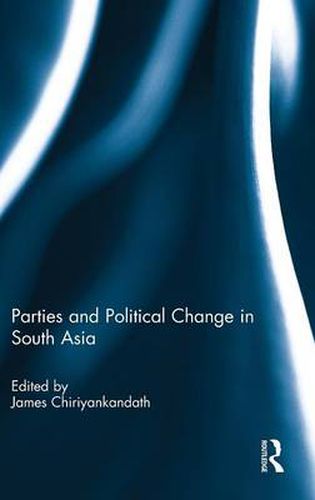Readings Newsletter
Become a Readings Member to make your shopping experience even easier.
Sign in or sign up for free!
You’re not far away from qualifying for FREE standard shipping within Australia
You’ve qualified for FREE standard shipping within Australia
The cart is loading…






Over the past seven decades and more, political parties have become an essential feature of the political landscape of the South Asian subcontinent, serving both as a conduit and product of the tumultuous change the region has experienced. Yet they have not been the focus of sustained scholarly attention. This collection focuses on different aspects of how major parties have been agents of - and subject to - change in three South Asian states (India, Pakistan and Sri Lanka), examining some of the apparent paradoxes of politics in the subcontinent and covering issues such as gender, religion, patronage, clientelism, political recruitment and democratic regression. Recurring themes are the importance of personalities (and the corresponding neglect of institutionalisation) and the lack of pluralism in intraparty affairs, factors that render parties and political systems vulnerable to degeneration.
This book was published as a special issue of Commonwealth and Comparative Politics.
$9.00 standard shipping within Australia
FREE standard shipping within Australia for orders over $100.00
Express & International shipping calculated at checkout
Over the past seven decades and more, political parties have become an essential feature of the political landscape of the South Asian subcontinent, serving both as a conduit and product of the tumultuous change the region has experienced. Yet they have not been the focus of sustained scholarly attention. This collection focuses on different aspects of how major parties have been agents of - and subject to - change in three South Asian states (India, Pakistan and Sri Lanka), examining some of the apparent paradoxes of politics in the subcontinent and covering issues such as gender, religion, patronage, clientelism, political recruitment and democratic regression. Recurring themes are the importance of personalities (and the corresponding neglect of institutionalisation) and the lack of pluralism in intraparty affairs, factors that render parties and political systems vulnerable to degeneration.
This book was published as a special issue of Commonwealth and Comparative Politics.